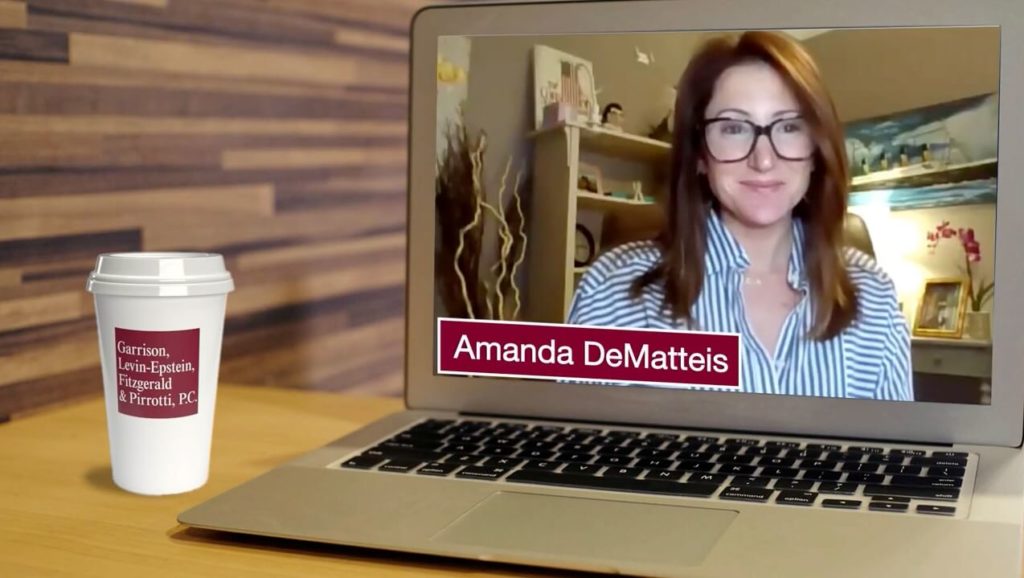Joshua Goodbaum: Hi, Amanda.
Amanda DeMatteis: Hi, Josh. What are we going to talk about today?
Goodbaum: I thought we could talk about workplace harassment – obviously, a serious issue – and employees who are trying to engage in what we would call “self-help.” So, we’ve talked before about employees who try to record – using their phone, for example – workplace interactions that they think show harassment. But there are other ways that employees can try to collect evidence on their own. Some of those ways are better than others, and one of those ways is employees are often tempted to forward emails or other documents to themselves from their work accounts to their personal accounts because they think, “I want to have this evidence so I can talk about it with a lawyer,” right? Is that a good idea?
DeMatteis: It very well could not be a good idea, and it happens all the time, and we get it, right? You’re feeling like you’re desperate. You want to be able to go to a lawyer and say, “Look at all this evidence I have. Look at what my employer is doing to me.” I mean, to be able to prove it, right? More than just your word. But it could really get you into hot water.
One of the biggest pieces of advice we give people who are being harassed at work and who it’s impacting them – on a personal level, on a professional level, on an emotional level – is look, you have to dot all your i’s and cross all your t’s. You really have to be on your best behavior, because that’s the prime time for you to just accidentally slip up, and the number one thing that you don’t want to do is give your employer a legitimate reason to take some type of action against you or to terminate you, and forwarding yourself emails could be one of those things.
Think about it: Maybe you work for someone that has private, confidential information – a bank, any type of healthcare institution, any type of financial institution. You have to be really careful, because what you can be doing is forwarding yourself confidential information that should not be leaving that employer. So, that’s one issue.
It also could be a violation of [your employer’s] policy that simply says you may not forward yourself or you may not remove company emails from work and by simply hitting forward and sending something to your private email account, you’re doing that. Not to mention, with the level of IT in most of these institutions at this time, your employer is going to know immediately when it’s done. Think about it, from a bank standpoint, right? The minute you hit forward or print on an email, that’s all tracked, that’s all logged, and your employer could know that you’re doing it.
So, what do you do? You have this information. You want to somehow retain it.
Here’s a couple of ideas. Number one, you can make a list for yourself. Write down on a piece of paper the date of the communication, who it was to, who it was from, something that identifies it, so that when you go to an employment lawyer, you can say, “Here are the emails that I think you need to see in order to see evidence to substantiate and support my claims.”
The other thing you should do: Take those emails and turn them into PDFs. Save that PDF on the employer’s server into a folder. Name that folder something like, “Evidence of workplace harassment” or “Evidence of hostile work environment,” and keep it right on the server. Make sure you write down the path exactly how you get to it so that, again, when you’re sitting down with an employment lawyer, you can say, “I’ve stored all the evidence you need, it’s on the employer server, here’s where you find it.”
Now, your employment lawyer can get on the phone with counsel for your employer and say, “Hey, here’s all the evidence on your server that you could very easily locate to see exactly what’s been going on.” So you’re still preserving all that evidence, you’re still helping yourself, you’re helping your employment lawyer, and you’re not putting yourself in hot water, you’re not giving them a reason to terminate you, and that’s super important. Hope that’s helpful.
Goodbaum: Great advice! Thanks so much, Amanda. Take care.
DeMatteis: Take care.

